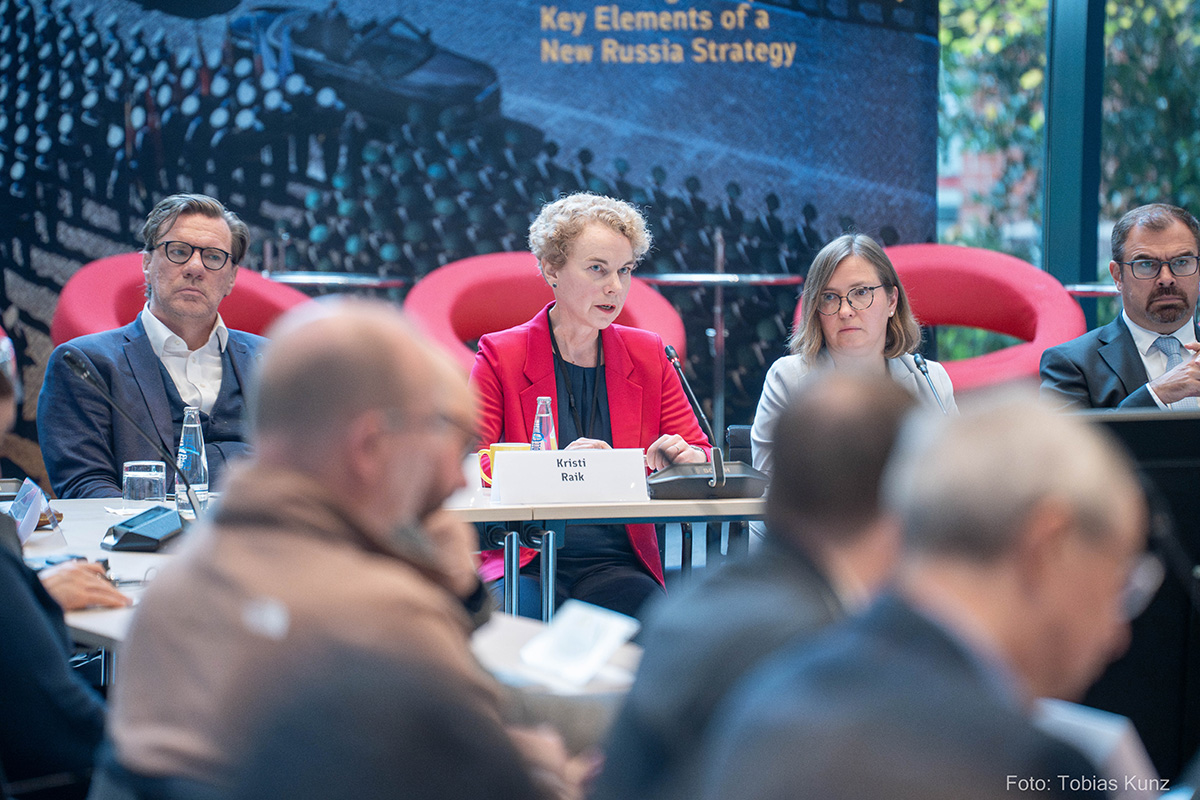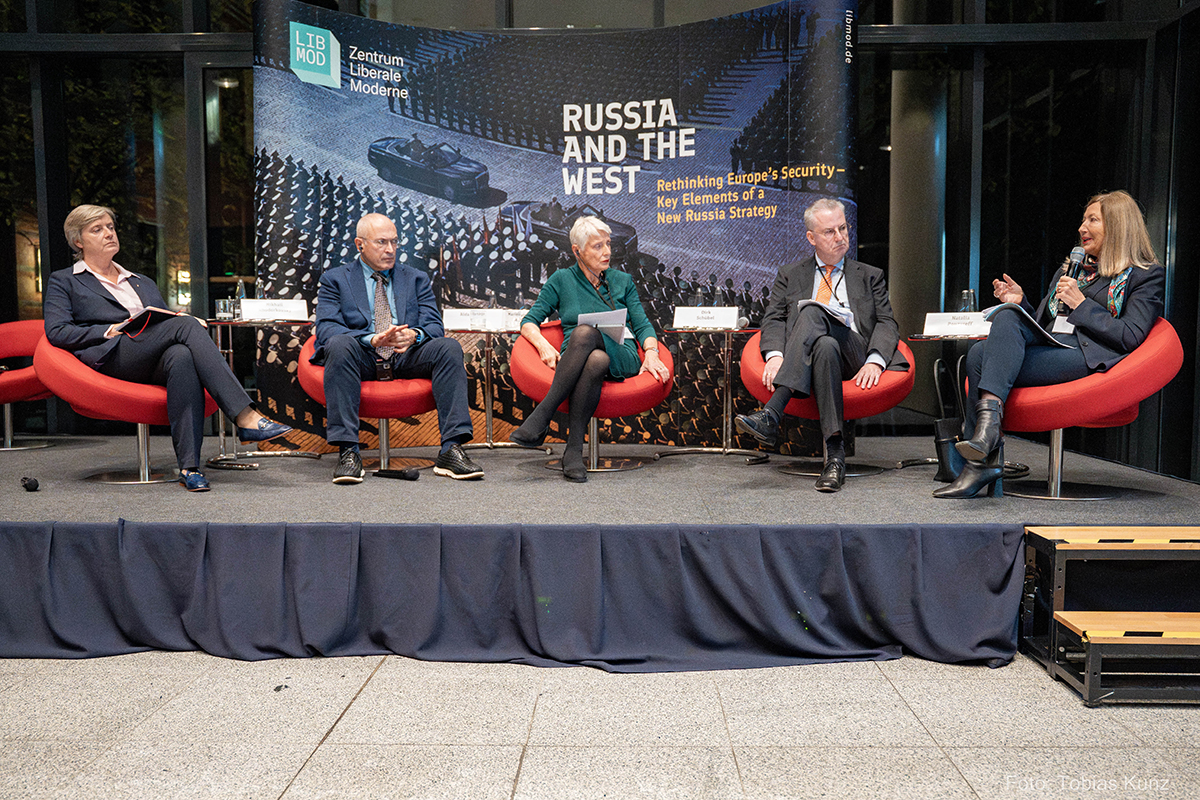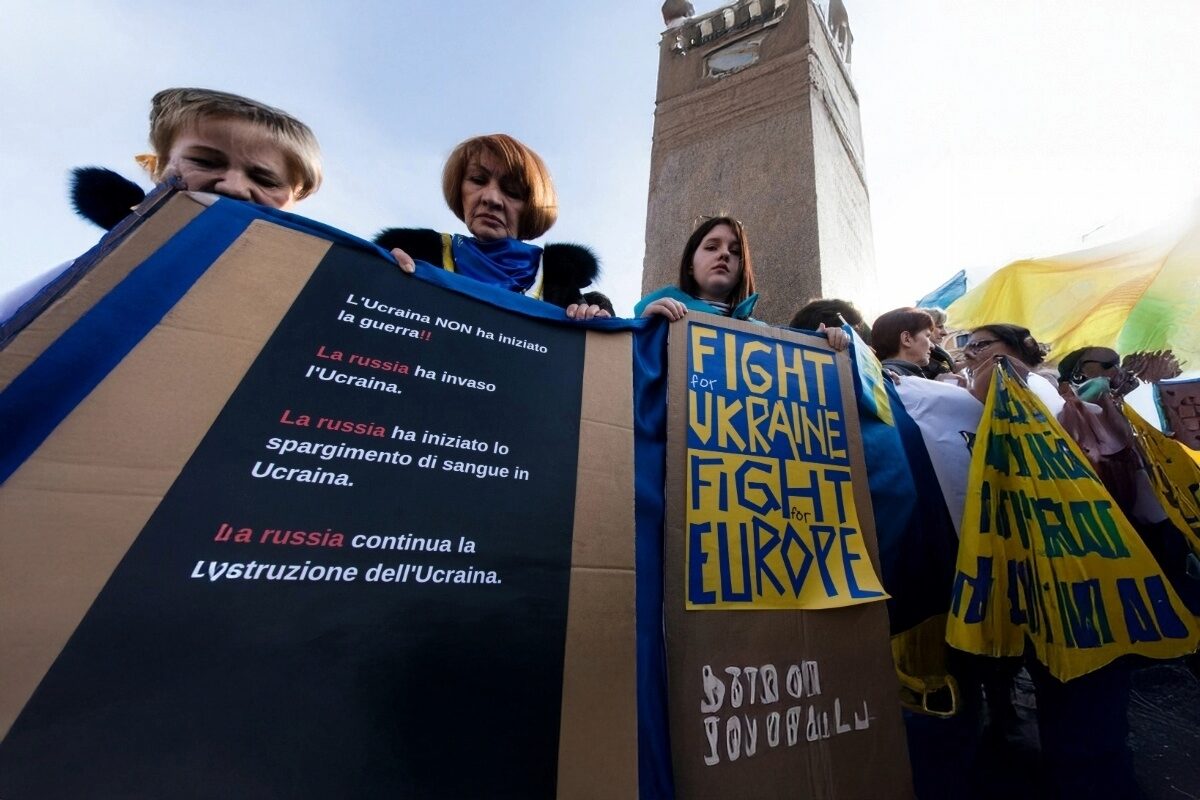A German Churchill or a Coalition of the Willing?

Germany’s foot-dragging over military aid to Ukraine and the half-hearted implementation of Chancellor Scholz’ Zeitenwende were subjected to sharp criticism at the Center for Liberal Modernity’s recent public discussion “Russia and the West – What is at Stake”. Participants disagreed over if and how policymakers in Berlin can turn the tide and make a Ukrainian victory possible. Some put their hopes in a Coalition of the Willing that would prompt Germany to follow suit.
The German government’s now long-running hesitation to provide adequate military support to Ukraine is cause for considerable frustration among some of its allies. The fact that this is caused by fears of an escalation of the war and a possible decomposition of the Russian leadership does not make this any better, according to Swedish expert Charlotta Rodhe and Lithuanian MEP Andrius Kubilius. “These are the wrong fears”, Rodhe said, adding that everybody should really fear a defeat of Ukraine. This would trigger massive refugee flows and force NATO to increase military spending manyfold in the face of an emboldened and aggressive Russia – to perhaps 2 trillion euros (in 2023 it was around 1.2 trillion).
Kubilius called for a ‘bold dual strategy’: A military one to help Ukraine achieve victory, and a political one to create clearer prospects for regime change in Russia. He argued that it is in everybody’s interest that Russia becomes a “normal country” that poses no threat to its neighbours: “We have an obligation to support Russia in becoming different,” he said. Kubilius, who was Lithuanian Prime Minister from 2008 to 2012, expressed hope that Berlin would take on more leadership, even saying that he would be “happy if Germany produced a second Churchill”.
Russia has crossed all red lines
Malgorzata Kosiura-Kazmierska, who heads the eastern department in the Polish Foreign Ministry, refrained from addressing Germany directly, but argued that Western policymakers need to generally change their mindset, given that Russia sees itself at war with the West: “Russia has crossed all red lines, so we should also overcome the red lines in our thinking,” she said.
Mikhail Khodorkovsky also did not address Germany directly, but put forward a drastically bleak scenario for Ukraine. The Russian businessman turned Putin critic argued that without a massive increase in foreign aid Ukraine’s military expenditure was simply too small: While Russia had spent 120 billion US dollars or 5.4 per cent of its GDP on the war in 2023, the EU was spending just 0.25 per cent of GDP on supporting Ukraine.
Khodorkovsky warned that under these circumstances Kyiv would lose the city of Kharkiv this year and Odesa next year. By 2026, Ukraine may just be able to wage a guerrilla war. He then sarcastically lambasted the idea of negotiating with Putin. “Then we must honestly say to the Ukrainians: We have betrayed you, stop the pointless resistance,” he said.
The three Bundestag MPs, who spoke during the debate’s second half, agreed on the urgency but differed on how to implement it.
Germany’s political elites are wasting the opportunity to rally everyone behind freedom
Diemtar Nietan of the Social Democrats made a very emotional call for a cross-party effort to unite a majority of the population behind more support for Ukraine. “We cannot impose this, we must win over the people,” he said. Nietan, who is not standing for re-election in 2025, added that this was only possible if the democratic camps showed more unity. He lamented that ingrained ritualistic party politics prevents this and warned that Germany’s political elites “are wasting the opportunity to rally everyone behind freedom”.
However, Nietan’s colleague Jürgen Hardt from the oppositional Christian Democrats immediately reverted to party politics by blaming parts of the SPD and Chancellor Olaf Scholz for the fact that the Zeitenwende was not being implemented. Hardt, who is foreign policy spokesman for the CDU/CSU parliamentary group, argued that the FDP, Greens and CDU/CSU were behind Kyiv: “We have a clear democratic majority in favour of more aid for Ukraine, but .. a group in the coalition, led by the Chancellor, is preventing this,”, he said.
Robin Wagener from the Greens agreed with Nietan that foreign policy too often falls back to domestic political debates and that a strong democratic alliance was badly needed. Wagener also called for lifting the austerity “debt brake” and pleaded for the use of Russia’s frozen Central Bank assets to support Ukraine.
Can a Coalition of the Willing entice Germany?
At the end of the evening, LibMod-cofounder Marieluise Beck expressed hope that a ‘Coalition of the Willing’ formed from countries like Poland, Lithuania and the Czech Republic could drive Germany to change its policy. “Given the urgency for Ukraine, I think this is a strategic possibility,” she said.
![]()
Did you like this article? If yes, you can support the independent editorial work and journalism of LibMod via a simple donation tool.
Donate via PayPal
![]()
We are recognized as a non-profit organization, accordingly donations are tax deductible. For a donation receipt (necessary for an amount over 200 EUR), please send your address data to finanzen@libmod.de
Related topics
order Newsletter
Stay tuned with our regular newsletter about all our relevant subjects.




























